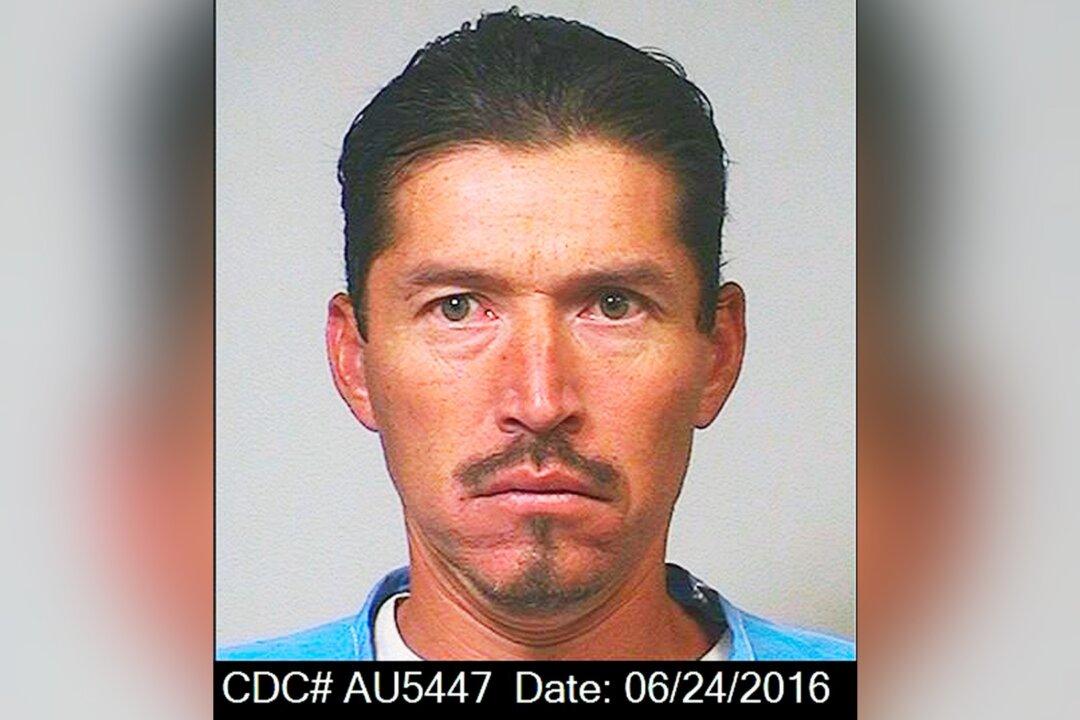LOS ANGELES—A man convicted of fatally shooting a research scientist as he slept inside a tent with his two young daughters in Malibu Creek State Park in what the judge called a “cold-blooded” crime was sentenced Wednesday to 119 years to life in prison.
Anthony Rauda, 46, was brought into a downtown Los Angeles courtroom in a restraint chair and wearing a spit-hood over his head—the result of two earlier attacks on sheriff’s deputies while he’s been in custody.





